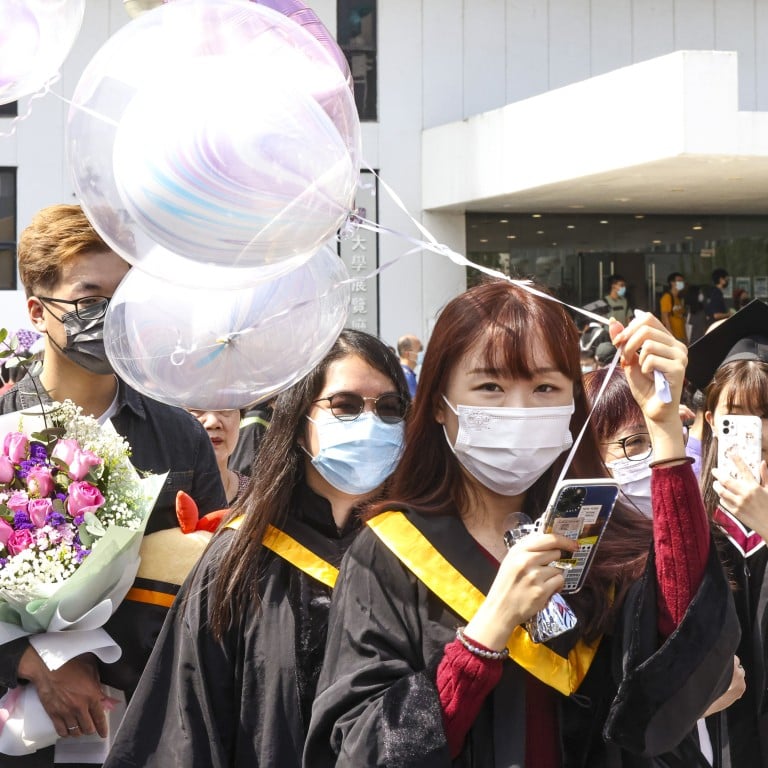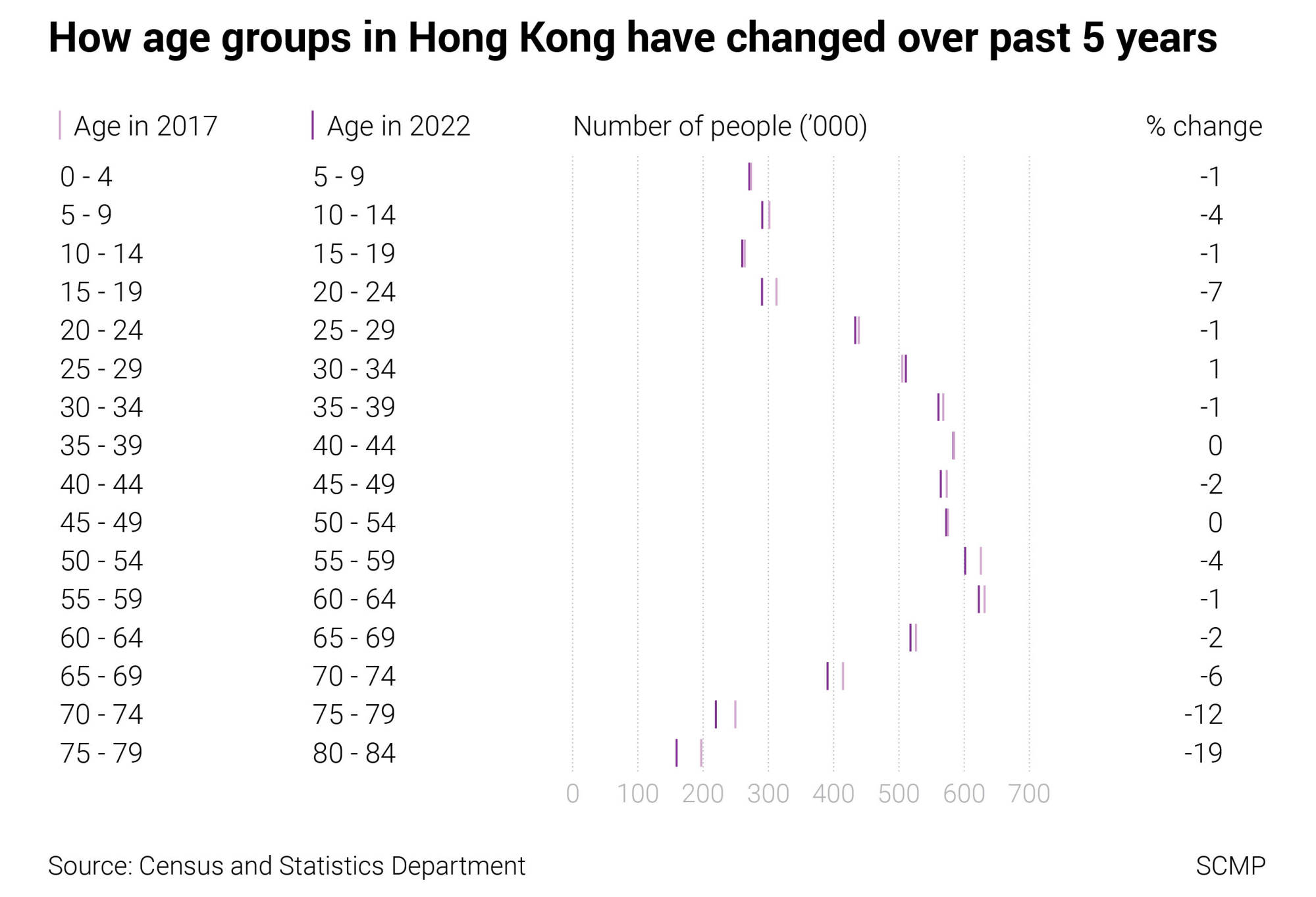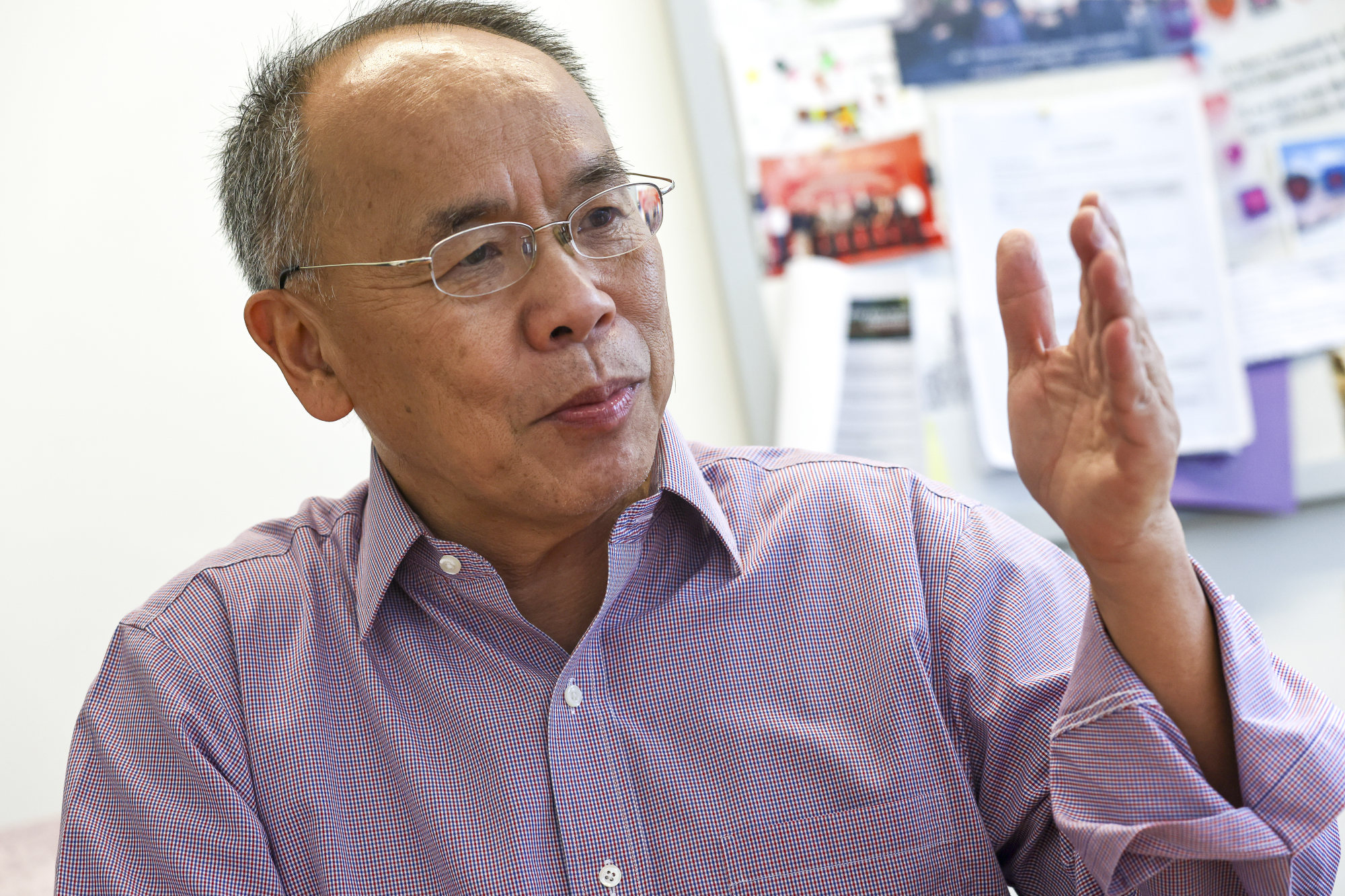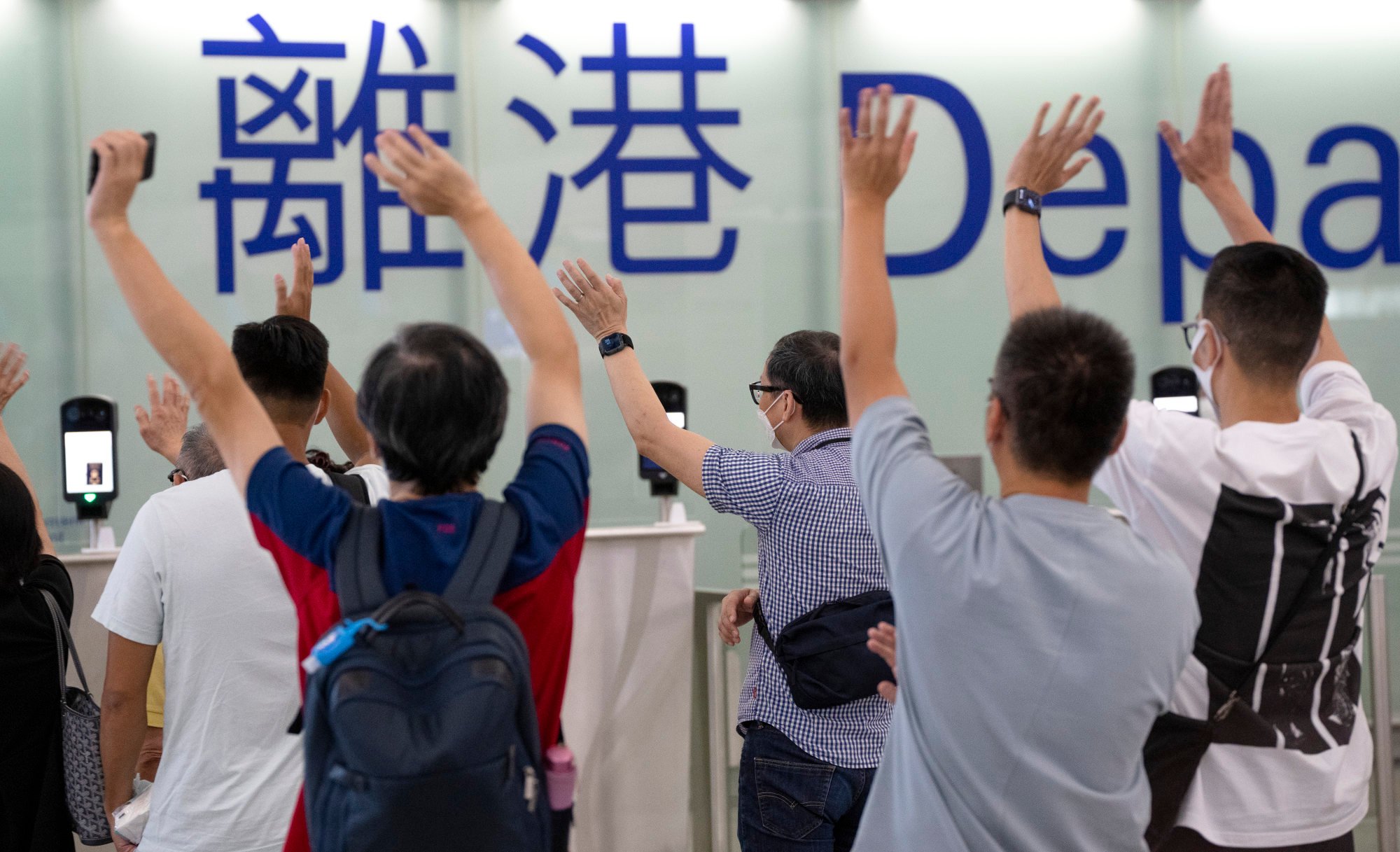
Losing them young: Hongkongers in their early 20s are biggest emigrating group in worrying trend for ageing society
- City’s population aged 20-24 shrinks as residents take advantage of easier emigration pathways offered by Canada and Britain
- Government must find ways to address concerns of young or risk seeing more leave, expert says
Young people in their early 20s have emerged as the main group of Hongkongers who have left the city over the past five years, according to official figures.
The city’s population fell across almost all age groups since 2017, with the sharpest decline among those aged 20-24. The city lost 22,190 of them, as their number slid 7 per cent from 312,290 to 290,100.
Next were children aged 10 to 14, whose numbers fell by about 10,000 to 290,600, a 4 per cent drop, a Post analysis showed.

Population expert Professor Paul Yip Siu-fai said those in their early 20s were mostly fresh graduates targeted by Western countries hoping to boost their workforce through easier emigration pathways for Hongkongers.
He found the loss of young graduates worrying, and said Hong Kong’s leaders had to address the implications for the workforce and economy, especially with the city’s ageing population and declining birth rate.
“Every country is happy to take young people in their 20s, as they readily enter the workforce, but we in Hong Kong are losing them. The government really needs to take some remedial measures,” said Yip, who is a professor of population health at the University of Hong Kong (HKU).

The government announced last month that more than 113,000 residents had left Hong Kong over the past 12 months, making for a record 1.6 per cent drop in the population.
A Post analysis of Census and Statistics Department data over the past five years found that apart from the 30-34 age group which showed a slight rise, all other age groups shrank.
Overall, the number of those aged five to 39 fell by 46,300 – or 1.7 per cent – a contrast with earlier years when this group of the city’s youngest people always recorded an increase.

The data also reflected the impact of emigration packages rolled out for Hongkongers last year, after Beijing imposed the national security law on the city in June 2020.
Since last year, Canada has issued Hongkongers nearly 12,500 open work permits which could lead to permanent residence, with almost one in four aged 25 or under.
Immigration, Refugees and Citizenship Canada told the Post that 1,120 Hong Kong residents were given permanent residence between the launch of the bespoke pathway for Hongkongers and June this year, and almost three in five were 25 or younger.
Between January last year and June this year, 133,124 Hongkongers received approval to settle in the United Kingdom under the British National (Overseas) visa scheme.
Population expert Yip was worried that Hong Kong faced the prospect of having fewer young people to support its ageing population.
The elderly dependency ratio, comparing the number of people aged 65 for every 1,000 people aged 15 to 64, has swollen from 100:1,000 in 1982 to 282:1,000 last year.
There are now 1.52 million people aged over 65 in Hong Kong’s population which is currently 7.29 million. Their number is projected to rise to 2.37 million in 2036 and 2.59 million in 2066.
Census to focus on Hong Kong’s ageing population and need for care services
Yip said the city’s low birth rate would also decline further as young people left. Only 37,000 babies were born last year, a record low since data became available from 1961.
Referring to the anti-government protests in 2019, he urged officials to put themselves in the shoes of young Hongkongers and not regard them always as a source of trouble.
Young Hongkongers were eager for a better quality of life, not only the pursuit of money, he said.
“They want society to become fairer and freer, more open and just. The government needs to make an effort to think about why the young are leaving,” he added.
Secretary for Home and Youth Affairs Alice Mak Mei-kuen said last month that her bureau was working on a blueprint to address four issues young Hongkongers were deeply concerned about – education, jobs, housing and entrepreneurship – and an initial version would be rolled out at the end of the year.
Meanwhile, employers were already feeling the impact of Hong Kong’s missing young people, according to Alexa Chow Yee-ping, managing director of recruitment agency ACTS Consulting.
She said employers were finding it hard to recruit entry-level employees as they were seeing fewer applicants than in the past.
Hong Kong schools cut 67 Primary One classes as student population drops
She said the situation might worsen as more parents with young children made plans to emigrate, drawn by the prospect of obtaining citizenship and enjoying local students’ fees in universities in places such as Britain.
One way out for Hong Kong might be to attract young graduates from mainland China or overseas, who tended to care less about the city’s political climate, Mak said.
Willis Fu Yiu-wai, a senior immigration consultant at Goldmax Associates, said the number of inquiries from young residents leapt after the new emigration pathways opened up to Hongkongers.
He said parents were the ones who were most eager to get their children in their 20s out of Hong Kong.

